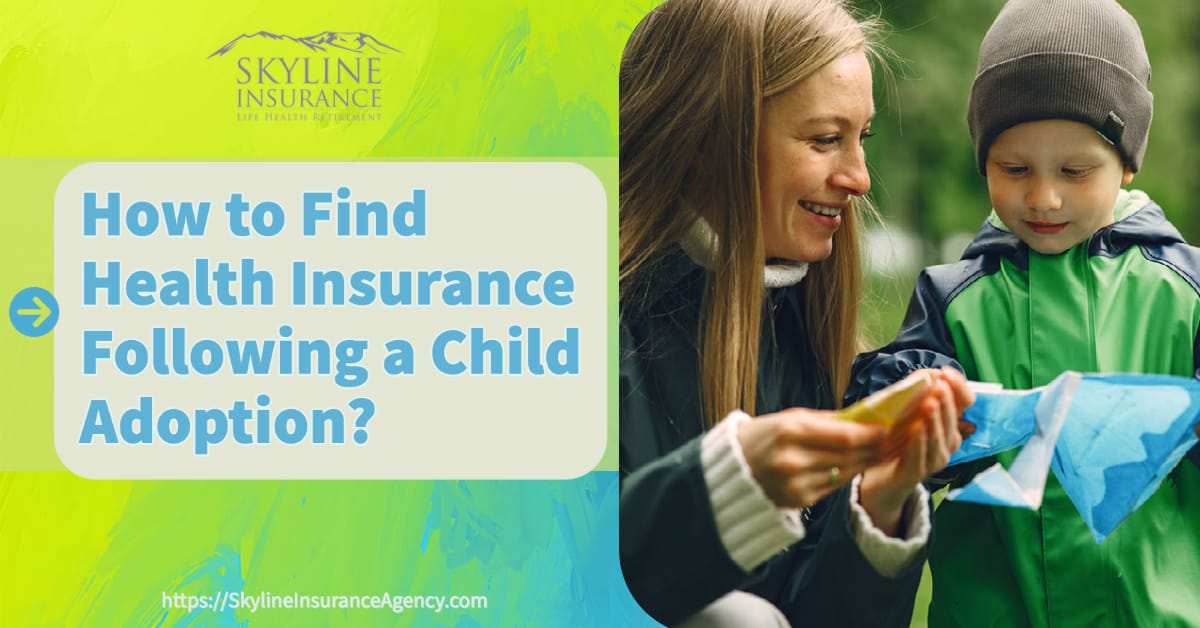Parents are encouraged to make sure their whole family is financially secure and they can do so by purchasing quality health insurance. The need for health coverage becomes even more intense if they are expecting their first child (by birth or adoption).
A “QLE” or Qualifying Life Event, is used to gain coverage under the “Affordable Care Act”. Under this law, a child’s birth or the adoption of one can count as a QLE. Therefore, it made it possible for all family members to enroll in a particular Marketplace plan (also called Obamacare plans or Affordable Care Act plans).
SEP, often known as the “Special Enrollment Period,” is triggered by a qualifying life event. This works to the benefit of everyone concerned because it makes it possible for them to use the Marketplace sans the need to go through the Open Enrollment Period, which comes once every year.
You’ll be shocked to realize how simple it is to get health insurance after becoming a parent or adopting a child. The following are the essentials you should be aware of.
Why Do We Consider the Birth or Adoption of a Child a Qualifying Life Event?
Changes in your family dynamics may qualify for a special enrollment period. This is called a QLE or Qualifying Life Event, often abbreviated as “SEP” for Special Enrollment Period. This kind of change in family dynamics can come with the arrival or birth of a new baby or when you adopt a child.
There is nothing stopping you from including your kid since there is nothing standing in the way. You may also shop for one by virtue of your QLE even though you currently don’t have an insurance plan. If you fulfill the SEP requirements under this QLE, you may be eligible to buy an Obamacare plan via the Marketplace. After a SEP is granted, you will have 60 days to apply for and acquire coverage via the Marketplace.
What Happens During a Special Enrollment Period and How Does It Work?
During special enrollment periods, you will sometimes find it hard to register for a health insurance plan, but you shouldn’t be troubled with this kind of issue when you’re expecting a baby! When you become a parent or when you adopt a child, you are required to provide a copy of the birth certificate of the child or if adopted, the official letter of adoption in order to receive coverage.
After validating your QLE, you will have open access to the Marketplace, just as you had during the Open Enrollment Period. Plans, premiums, and tax credits, you can assess them all, along with alternative plans and tax credits (premiums).
Within 60 days following your QLE, you will need to complete your SEP.
You must make the most out of it because after your Special Enrollment Period (SEP) expires, you must wait until the next OEP or Open Enrollment Period to register for Marketplace insurance.
What Other Choices Do I Have Besides Health Insurance?
To learn more about other available options, consider paying a visit to the official website of Skyline Insurance agency. You may also call us at 801-396-8200 to get Affordable Care Act (Obamacare) Marketplace insurance. Other options are also available, as shown below.
Medical Health Insurance
If your income is low enough, you may be eligible for Medicaid health insurance coverage. Known as Medicaid in the United States, this federal-state health insurance program targets low-income individuals to provide them premium health coverage. Medicaid is a benefit that you are entitled to each month based on your monthly income. It does not discriminate against the elderly, the handicapped, pregnant women, adults, children, or those suffering from a physical or mental impairment.
Medicaid is an independent program run by each state, and each Medicaid program determines what benefits it will offer to its residents. On the other hand, these initiatives are subject to the standards set by the federal government.
The Medicaid program covers many benefits and services. If you need nursing home care, hospital treatment (whether inpatient or outpatient), home health care, physician care, and diagnostic testing, Medicaid will facilitate these health services for you.
In addition to family nurse practitioners, nurse midwives, and qualified pediatric and freestanding birth centers, there are also licensed and recognized nurse midwives, family nurse practitioners, and qualified pediatric and freestanding birth centers. Moreover, smoking pregnant women can also receive help in the form of smoking cessation counseling.
Eligibility for Medicaid
In recent years, many states have decided to expand the scope of their Medicaid programs to conform with the rules and requisites of the “Affordable Care Act”, making it possible to cover people under the low-income bracket (ACA).
States must either expand Medicaid or fulfill extra conditions in order to obtain Medicaid benefits (including parenting a minor, being pregnant, or having a disability).
There are currently more than 30 states that allow previously ineligible individuals to apply for Medicaid. Idaho and Nebraska, on the other hand, are the two remaining states that have not done anything yet about it.
Most of these states give Medicaid to people who make less than the Federal Poverty Level, which is less than 138%. In a family of four, this translates to $36,156 for individuals and $17,608 for families.
Adults are generally judged ineligible for Medicaid benefits in any of the 14 states that have declined to expand their Medicaid programs unless they first fulfill a set of conditions that must be met.
Medicaid is currently available to children whose families earn more than 200 percent of the federal poverty level in 49 states. Putting that into perspective, it will be about $43,440 a year for a family of three. Women who receive more than 200 percent of the Federal Poverty Level (FPL) while pregnant are covered in 34 states as well (FPL).
With respect to the Affordable Care Act, those who make up to 138 percent of the poverty line in 32 states are now entitled to Medicaid coverage. This is because the law was put into place. A growing number of states are interested in expanding Medicaid, although they haven’t taken any concrete steps yet.
Applying for Medicaid
At the conclusion of the annual Open Enrollment Period, you may still apply for Medicaid coverage at any time.
Consulting an Advisor at Skyline Insurance, you have a good chance of finding out whether you qualify for Medicaid benefits with respect to your current income level, where you live, and whether your state has agreed to broaden its Medicaid offering or not.
If you meet the qualifying conditions for Medicaid, you may initiate the application process electronically with the State. After completing your application, it gets submitted to your region’s Medicaid office for further processing.
Authorized personnel will examine the information you submitted to them within a few weeks of receiving your application. After which they will relay to you an official report of determination regarding their findings and decision. However, if you do not get a word from them within a reasonable amount of time, we suggest you reach out to them already and make a follow-up inquiry about it.
Children’s Health Insurance Program (CHIP)
CHIP (Children’s Health Insurance Program) is a federal program that supports states in maintaining healthcare systems that promote and benefit the wellbeing of kids. Low-income people and their respective families are assisted by these state programs.
Unfortunately, Medicaid doesn’t offer coverage for children in many of these families or might be that their work insurance does not cover children at all. The amount of CHIP coverage that is available to them would vary by state. Many of them nonetheless cover children whose families earn under 200% of the Federal Poverty Level.
Who Can Take Advantage of the CHIP Program?
CHIP is backed by federal government funding, but even so, each state comes with its own array of rules. Uninsured children aged 19 and under in households belonging to high-income brackets may not be eligible for Medicaid. Hence, their respective state’s program may only provide them barebone healthcare. Since rules from state to state vary, you are best off when you contact your state directly to make sure your child qualifies for assistance.
What Does CHIP Cover?
The basic coverage is provided by all states’ CHIP programs, even though eligibility differs by state. These are some examples:
- Prescriptions
- Immunizations
- Routine exams
- Routine exams
- Hospitalization (both inpatient and outpatient)
- Ambulance and emergency room services
It’s important to remember that this program covers the cost of a child’s biannual dental appointments and primary care requirements.

